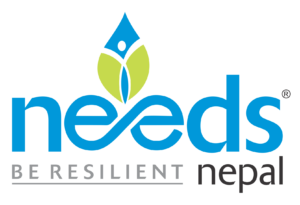Introduction
Discover our journey, mission, and commitment to transforming communities across Nepal
National Environment and Equity Development Society (NEEDS Nepal) is a non-profit, non-governmental organization that has been actively working in the development and humanitarian sector for the past 26 years. Ever since its inception in 1999 as a youth group, NEEDS Nepal has been engaging in various social transformation, good governance, and development initiatives. The organization is registered with the Government of Nepal. It has partnered with numerous government and non-government agencies to implement programs that focus on disaster risk reduction, climate resilience, empowerment, and social transformation of the marginalized and vulnerable communities like children, women, persons with disabilities, Dalit, and Indigenous people.
The organization primarily operates in Sudurpaschim Province, expanding to Banke and Bardiya districts in Lumbini province, Jajarkot district of Karnali, Jhapa, and Panchatar District of Koshi Province. It implements programs that address various social and economic issues, including the harmful impacts of climate change and disasters, with a focus on marginalized and vulnerable groups. The activities include social awareness, good governance, safe migration, climate resilient livelihood, disaster risk reduction, WASH, and entrepreneurship initiatives that align with the policies and programs of the Government of Nepal and NEEDS Nepal’s strategic plan of 2019-22. Through its partnerships and programs, NEEDS Nepal aims to contribute to the overall development of Nepal and improve the quality of life for marginalized and disaster-affected vulnerable communities.

Vision
A resilient society with social justice and prosperity
Mission
Creation of resilient societies through transformative societal change targeting economically marginalized and vulnerable communities ensuring their full enjoyment of Economic, Social, Cultural, Environmental and Political Rights.
Goal
To promote social justice and rights, dignified migration, employment, climate and disaster resilient actions for the marginalized and vulnerable groups for the fulfilment of their economic, social, cultural, environmental, civic, and political rights and duties.
Objectives
To promote equitable access and utilization of essential services like food, safe housing, health, education and employment to disadvantaged and vulnerable groups including women, children and marginalized groups.
To support marginalized and disadvantaged communities in achieving sustainable livelihoods through entrepreneurship development and economic empowerment
To enhance community resilience to cope with and minimize climate and human-induced disasters
To advocate for safe and dignified internal and external migration
Core Values
Transparency/Accountability
Professionalism
Integrity
Participatory Working Culture
Innovative and Growth Mindset
Dignified Behaviour
Commitment to GEDSI
Target Beneficiaries
People We Work With
- Marginalized and Vulnerable Communities
- Women, Children and People with Disabilities
- Gender and Sexual Minorities
- Ethnic Minorities
- Migrant Workers and Their Families
- Disaster Prone Communities
- Smallholder Farmers

NEEDS Nepal's Working Approaches
Programmatic Approach
NEEDS aligns and integrates interventions within its thematic areas to ensure synergy, complementarity, and impactful outcomes at all levels.
GEDSI Approach
We mainstream GEDSI across all programs by targeting the most marginalized and promoting intersectional inclusion to foster equitable development.
Evidence-Based Strategic Advocacy:
We utilize evidence from its interventions to influence policy reform, implementation, and monitoring in alignment with national and SDG frameworks.
Innovative Approach:
We promote innovation by piloting new ideas and technologies in programming, fostering a learning culture that informs adaptive, transformative development practices.
Multi-Stakeholders Partnership Approach:
We collaborate with diverse local and cross-border actors to co-create solutions and achieve sustainable development outcomes beyond organizational boundaries.
Human Rights-Based Approach
We integrate HRBA across all operations to empower rights-holders and hold duty bearers accountable, ensuring development efforts align with national and global human rights commitments.
